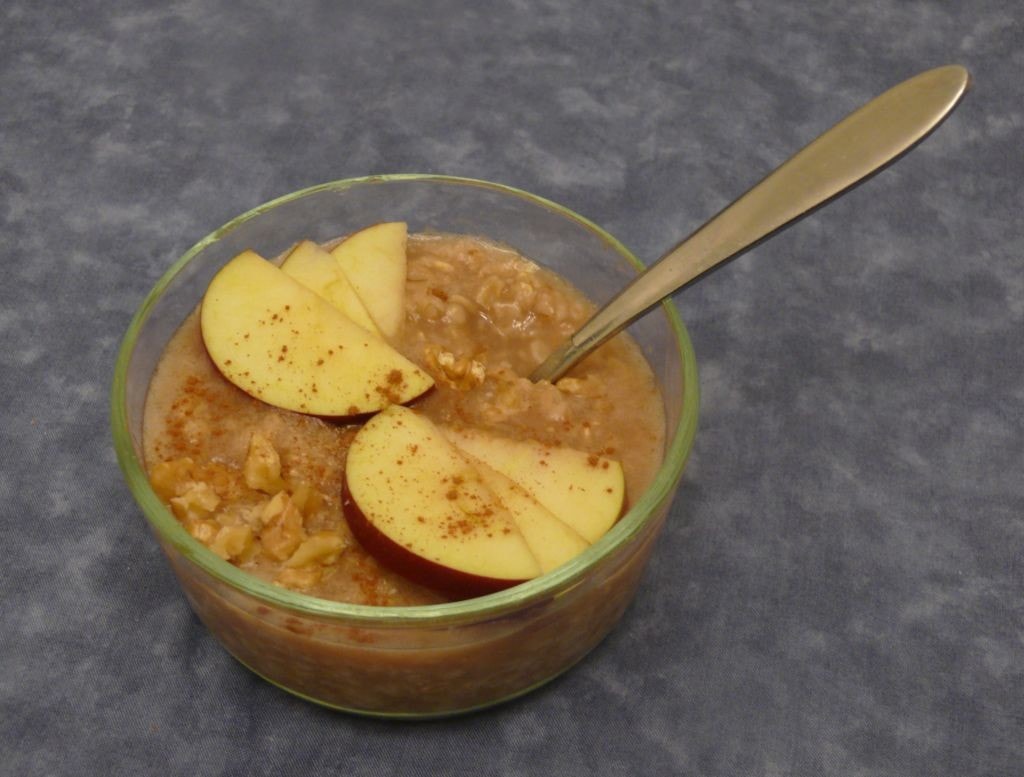Updated September 2019
When I look through my archive of gluten-free breakfast posts, I’m always surprised at how short this list was years ago. Now there’s a range of packaged options in addition to the naturally gluten-free options.
 Whether or not you’re back in school, it’s a nice time to re-evaluate breakfast options. We’ve all heard it—breakfast is the most important meal of the day, and gets us off to a good start. We need energy to study, work, and play. Many studies have shown improvements in concentration and learning for children who eat breakfast, and starting the day with a healthy breakfast helps adults, too. As a nutritionist, I look for breakfasts that are a good source of fiber and protein, and little or no added sugar.
Whether or not you’re back in school, it’s a nice time to re-evaluate breakfast options. We’ve all heard it—breakfast is the most important meal of the day, and gets us off to a good start. We need energy to study, work, and play. Many studies have shown improvements in concentration and learning for children who eat breakfast, and starting the day with a healthy breakfast helps adults, too. As a nutritionist, I look for breakfasts that are a good source of fiber and protein, and little or no added sugar.
And as a gentle reminder, there are no rules of breakfasts. If you like having leftovers or soup for breakfast, so be it. You have my official approval. BTW, curious what people eat around the world for breakfast? I loved this video from WaPo.
Cereals:
Highest in fiber and protein:
- Love Grown Power O’s
- Nature’s Path® Whole O’s
- Nature’s Path® Mesa Sunrise
- Van’s has two GF cereals (a little low in protein)
Especially when it gets a little cooler, hot cereals can be a wonderful breakfast. You can cook up a big pot and have it all week, and they freeze well, too.
Cooked grains choices:
- Buckwheat (kasha)
- Millet
- Amaranth
- Teff
- Quinoa flakes
- Oatmeal (certified gluten free, of course) Here’s a list of oatmeal produced with the purity protocol. Want to try overnight oats? Here’s a simple recipe (scroll 1/2 way down page)
- Bob’s Red Mill®: Mighty Tasty Hot Cereal and Creamy Buckwheat
Making cereals healthier:
- Add in some fresh or frozen fruit!
- Add in ground flax or chia seed to increase fiber content.
Other naturally gluten-free healthier options:

- Greek yogurt with fruit and chia
- Eggs-Add some spinach, mushrooms, onions, peppers, etc.
- Leaner, free-range sausage or turkey bacon
- Garden Lites muffins <–these are pretty easy to find at many grocery stores in the frozen section.
- Chia pods®
- Kashi has gluten-free waffles with 3 grams of fiber. Make sure and double check you’re getting the GF ones.
- Omelet
- Kefir and fruit. Good news for dairy-free peeps–it’s getting easier to find more options at Mom’s and Whole Foods.
- Yogurt (or coconut or almond yogurt) and chia seeds and/or fruit
- Breakfast smoothie: handful berries, some kind of protein (yogurt, protein powder) and a handful spinach or kale.
Love granola with your cereal? Kind has a whole grain granola. My grain-free friends–Paleo Krunch is delicious and great to sprinkle on yogurt, but it’s pricey. I have a MYO version here.
Two Mom’s in the Raw also have a certified GF granola option, and so does Go Raw. I’ve heard good things from clients but haven’t tried them out myself yet.
More and more, there are a wider range of cereal options, such as grits (marked GF), Chex, puffed rice, etc. There are also donut and muffin options in the freezer section as well. Obviously these aren’t as nutritionally dense.
Did I miss any of your favorites?
I don’t have Cheerios on the list intentionally, and as many of you know, there have been issues with Cheerios since they first launched, and the problems haven’t yet resolved. General Mill’s has declared that Cheerios is a gluten-free cereal; however, they are not following the “purity protocol” for growing gluten-free oats. Instead, they’re sorting oats at the end. While some batches seem to test below 20ppm, some have been higher. They also are testing “lots” versus individual boxes, which makes it easier to miss patches of contamination. Under pressure from advocacy groups, Cheerios stopped labeling as GF in Canada.
And as always–do check labels every time. Ingredients and manufacturing practices change.
Back to school?
- I’ve got tips for g-free kids here. Beyond Celiac has a nice info toolkit, as well.
- If you’re looking for easy snacks to stash in a backpack or for before practice, I recently updated my g-free grab and go list.
Harris Whole Health offers individual sessions to help people eat healthier and feel better! Cheryl works with people to feel and look their best with a range of specialties, including Celiac Disease, food allergies, pregnancy, breastfeeding, vegetarian and vegan diets, promoting great health and “whole foods” eating. Let’s get you on your way to achieving your goals. For an appointment with Cheryl Harris, Registered Dietitian and Nutritionist, please click here, email or call 571-271-8742.


 Carol of Simply…Gluten-Free put out a cookbook,
Carol of Simply…Gluten-Free put out a cookbook, 










